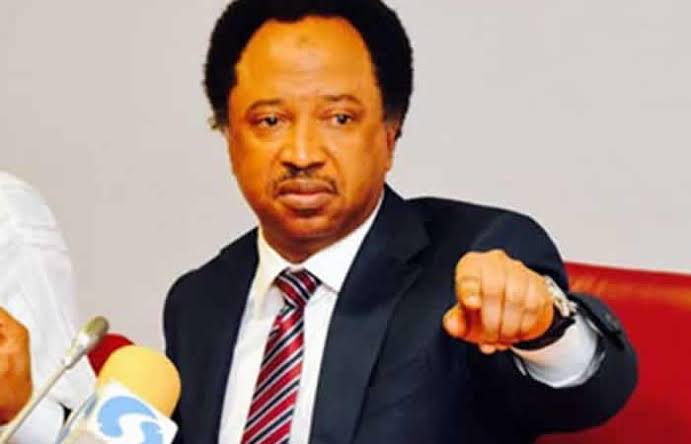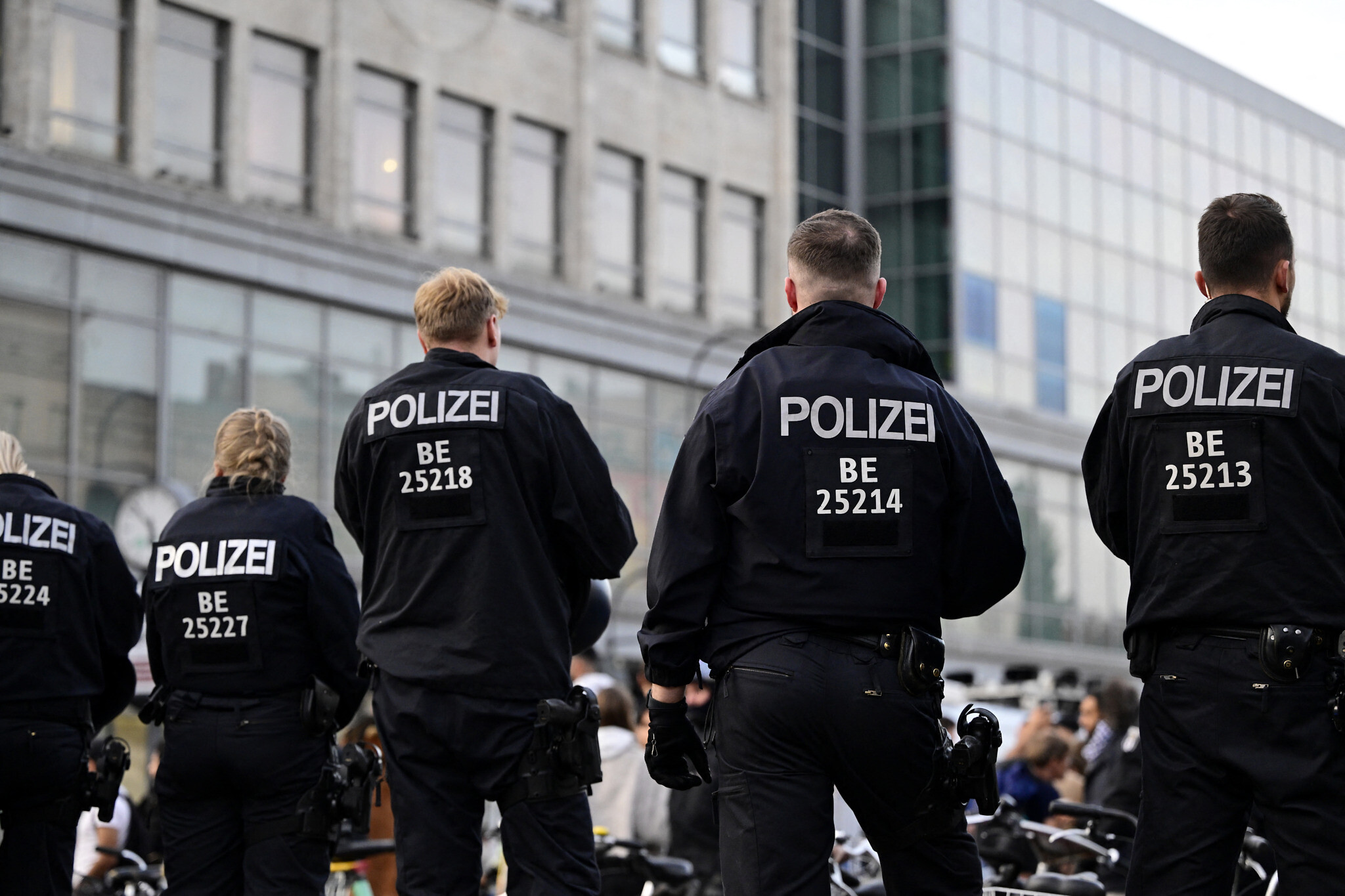Foreign
Why military takeover of govt in West Africa increasingly re-emerging – Sen. Sani

Former member of the National Assembly Sen. Shehu Sani has identified five reasons for the increasing reemergence of military takeover of governments in Africa, especially in the West African sub-region.
Speaking in an interview with the News Agency of Nigeria (NAN) in Abuja, Sani frowned at what he considers the increasing reemergence of juntas in the politics of especially West African countries but maintained that they keep recurring because the conditions were being created for them to return.
“We have seen in the past few years how democracies in the West African sub-region have collapsed. It has happened in Guinea, Burkina Faso, Mali, and now Niger Republic.
“Coup d’etats are internal issues and they do not happen within a day. Conditions are created for the military to take over power. And in West Africa today there are about five conditions that I have noted to be responsible.
“First is the destruction of democratic values. Elections are rigged. Many people who call themselves democrats have no respect for the Rule of Law. And the constitutions are consistently violated.
“When that is done the spirit of democracy is killed and the seed for the destruction of democracy is planted.
“Second, is economic in-equity and inequality. There is so much poverty in the land. And when you have poverty you have social dislocation and social crisis. By that, an atmosphere of illegal overthrow of government is created and giving justification for people to say democracy is not working because people are suffering, so the military need to take over.
Sani who was the Deputy Chair of the Senate Committee on Foreign Affairs in the 8th National Assembly identified the third reason as the issue of insecurity.
“The rise of terror groups in the Sahel – Boko Haram, the ANSARU, ISWAP – has made civilian authorities become dependent on the military for their safety and security.
“There is so much reliance on them. And that has given them that thinking and the mental redirection that they should be in charge.
“The fourth has to do with the fact that there is no coordinated attempt to save democracy in Africa. You find that whenever there is a coup there is no coordinated strategy or penalty for coups. And they happen, and continue to happen
“So the coup in Niger could have been prevented if the democracy was saved.
“Fifth reason: There are issues regarding the election of Niger’s ousted president Mohammed Bazoum which ECOWAS and the African Union (AU) closed their eyes to.
“Look at it this way. In Cote d ‘Ivoire Alassane Ouattara tinkered with the constitution as president and gave himself a third-term mandate. The ECOWAS and AU never raised an issue with that.
“The President of the Central African Republic today has tinkered with the constitution and given himself a tenure extension. The same thing has happened in Burundi. The AU and other sub-regional groups don’t raise questions,” he added.
According to him, a situation where democratic governance in member states deteriorates and regional and sub-regional bodies in the continent decide to speak out only when coups happen can always lead to military takeover of government.
Foreign
3 teens arrested in Germany for allegedly plotting terror attack

German authorities have arrested three teenagers aged 15 and 16 on suspicion of plotting a deadly Islamist terrorist attack in the western German state of North Rhine-Westphalia, prosecutors said on Friday.
The state’s Central Office for the Prosecution of Terrorism (ZenTer NRW) sought an arrest warrant for the teenagers over the Easter holiday.
They were suspected of plotting a terrorist attack in accordance with the aims and ideology of (extremist militia organisation) Islamic State.
The detained suspects are a 15-year-old girl from Dusseldorf, a 16-year-old girl from the Märkischer Kreis district and a 15-year-old boy from the Soest district, located about 100 kilometres to the east of Dusseldorf.
A fourth suspect has reportedly been identified in the south-western German state of Baden-Württemberg, and the local court there has issued an arrest warrant.
According to the investigators, the teenagers are accused of having agreed to commit murder and manslaughter.
This is in conjunction with the preparation of a serious act of violence endangering the state.
The presumption of innocence applied in all stages of the proceedings.
Security sources told newsmen that the young people had formed a chat group, but had not drawn up a concrete attack plan for a particular time and place.
However, sources said the cities of Dortmund, Dusseldorf and Cologne were discussed as targets, and attacks with knives and Molotov cocktails on people in churches or police officers in police stations had been considered.
The sources said authorities had also conducted searches as part of the investigation.
A machete and a dagger were seized in Dusseldorf, but no evidence of the construction of incendiary devices was discovered.
Sources said the father of the Dusseldorf suspect had already attracted attention from authorities in the past because he had allegedly collected donations for the Islamic State.
The investigators declined to reveal how the suspected terrorists were tracked down, but said that foreign intelligence agencies “did not play a role.”
Foreign
Putin Registers As Candidate For Russia’s Next Presidential Election

Russia on Monday officially recognised Vladimir Putin as a candidate for the presidential elections in March, a vote that he is all but certain to win.
The 71-year-old has led Russia since the turn of the century, winning four presidential ballots and briefly serving as prime minister in a system where opposition has become virtually non-existent.
The Central Election Commission said it had registered Putin, who nominated himself, as well as right-wing firebrand and Putin-loyalist Leonid Slutsky as candidates for the vote.
The election will be held over a three-day period from March 15 to 17, a move that Kremlin critics have argued makes guaranteeing transparency more difficult.
Following a controversial constitutional reform in 2020, Putin could stay in power until at least 2036.
Rights groups say that previous elections have been marred by irregularities and that independent observers are likely to be barred from monitoring the vote.
While Putin is not expected to face any real competition, liberal challenger Boris Nadezhdin has passed the threshold of signatures to be registered as a candidate.
However, it is still unclear if he will be allowed to run, and the Kremlin has said it does not consider him to be a serious rival.
















